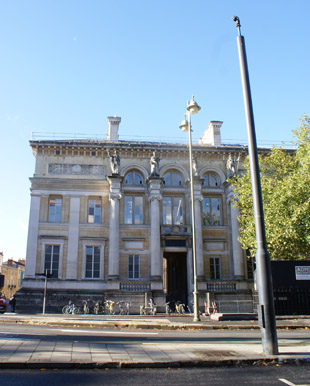Women are substantially more likely than men to say that they find themselves afraid in what should be innocuous everyday situations, says the polling firm Yougov.
The pollsters say that recent high profile murders of young women, particularly of Sarah Everard, have shocked the UK, and eroded public confidence in the police. A new YouGov survey shows that they have likely contributed to greater fears among women for their own safety. As Yougov also polled on the subject in December 2018, it reports that women are more likely to feel unsafe than they were in 2018, particularly when it comes to walking alone at night.
Near one in five women (19pc) don’t ever walk alone at night in the first place – a total twice as high as men (9pc). In 2018 near a third of women (32pc) said they regularly take precautions to protect themselves from sexual assault; that now stands at 41pc.
For the polling in full visit the Yougov website.
Hence, as featured in the November print edition of Professional Security, the latest, third round of Safer Streets grant money from the Home Office, which has provided £23.5m to police and local government, often with transport authorities or police and crime commissioners’ backing. (An ultimately successful bid from the Tyneside Metro, by the operator Nexus, was featured in the September edition of Professional Security.) The Home Office explicitly sought bids that answered women’s safety fears, whether to add lighting, video surveillance and physical security, or training and awareness.
For example, an Oxfordshire bid including Oxford’s two universities identified two key “destination” areas in Oxford city centre, and seven home “originator” locations in Oxford and Oxfordshire – including Headington Hill, Abingdon Town Centre, Witney and parts of South Oxfordshire – and will introduce a range of measures to improve the safety and security of women as they travel home.
The two ‘Safe Zones’ in Oxford city centre will act as a space between the nightclub and a home address where users can organise and wait for a safe journey. The zones will include mobile phone charging points (in case devices need charging to organise a journey home) and more CCTV and lighting.
Prof Anne-Marie Kilday, Pro Vice-Chancellor Student and Staff Experience at Oxford Brookes University, said: “We are pleased to be working with local partners as part of the Government-led ‘Safer Streets’ scheme. We work hard to make all of our students and indeed our staff aware of the steps they can take to keep themselves safe. Throughout the year this includes visits to student accommodation to talk about security, and work by our Student Community Wardens and Security Team who give out safety advice.”
And in Ipswich, as part of £422,200 awarded to Ipswich Borough Council from Safer Streets, a CCTV camera has been fitted in Maple Park, which will move around four locations, as identified by Suffolk Police to deter crime and anti-social behaviour. Footage will be monitored by the council’s 24-hour Emergency Control Centre.
For the full list of Safer Streets money visit the Home Office website.
In September, a report by Her Majesty’s Inspectorate of Constabulary and Fire & Rescue Services (HMICFRS) found inconsistencies between police forces in how they tackle the ‘epidemic’ of violence against women and girls (VAWG). Commenting, the Victims’ Commissioner for England & Wales, Dame Vera Baird QC, said: “This is a problem deep-rooted into our society and its prevalence and scale are shocking, if not wholly surprising. If we are to truly make headway and turn the tide, we need to see radical and urgent collective action from government, police and society at large.
Photo by Mark Rowe: public space CCTV outside The Ashmolean Museum.










